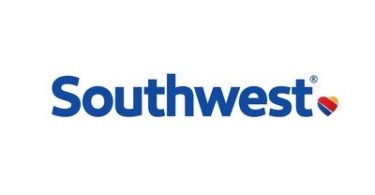Key financial figures slightly down overall in 9M 2016 – Group result expected to rise significantly due to special effects – Fraport’s international portfolio achieves mixed results
In the first three quarters of the 2016 business year, the Fraport Group achieved revenue of EUR1.94 billion (adjusted for IFRIC 12), thus continuing its positive performance from the previous year. The Group’s operating result or EBITDA (earnings before interest, tax, depreciation and amortization) slightly declined by two percent to EUR677 million in the first nine months, while the Group result dropped nine percent to EUR239 million. Likewise, operating cash flow reduced by five percent to around EUR500 million in the first nine months. As a result, free cash flow decreased by 20 percent to EUR310 million, also reflecting higher capital expenditure for property, plant and equipment at Frankfurt Airport.
Fraport’s financial performance has been impacted in particular by the current geopolitical situation, which has led in part to marked declines in passenger traffic both at Fraport’s home-base Frankfurt
Airport and, especially, at individual Group airports within Fraport’s international portfolio. From January to September 2016, a total of 46.7 million passengers passed through Frankfurt Airport (FRA), down 1.2 percent. Cargo throughput (airfreight + airmail, excluding transfer cargo) rose by 1.1 percent to 1.55 million metric tons, reflecting the slight recovery in the global economy.
Commenting on the Group’s business performance, Fraport AG’s executive board chairman, Dr. Stefan Schulte, pointed out the challenging market environment in which the company is operating:
“As a globally linked industry, aviation is particularly affected by current geopolitical conflicts and risks. And Fraport is not entirely immune to these developments. Therefore, it is even more important that our Group operates a broadly diversified portfolio, which we expect to generate considerable positive effects over the business year as a whole.”
“Equally important is the fact that growth trends continue to be intact in the aviation industry. Overall, Fraport has achieved robust performance during the first nine months of 2016, despite challenging market conditions.” In view of the ongoing slowdown in air travel demand as a result of geopolitical factors – which became manifest particularly during the summer peak months – Fraport is maintaining its outlook for the full year (as updated after the first half of 2016) and is still expecting a slight decline in year-on-year passenger traffic at FRA.
The fourth quarter of 2016 will see positive special effects as a result of payments received from the Manila and St. Petersburg projects. In Manila, the 14-year-long expropriation lawsuit was successfully concluded. The payment granted to Fraport as a result of the settlement is expected to have a net effect of some EUR120 million on the Group result (after tax). In addition, the transaction from the partial sale of Fraport’s share in its St. Petersburg subsidiary was concluded in October 2016. This will have a positive influence on the Group result in the amount of about EUR35 million.
CEO Schulte said: “The partial sale of our share in St. Petersburg has demonstrated that we are not only able to buy airports or concessions, but that we can also boost their attractiveness amid difficult market environments, even enabling us to sell them for a profit.”
For the full year 2016, Fraport now expects EBITDA to reach between approximately EUR1.04 billion and up to approximately EUR1.08 billion (instead of the previously expected range of EUR850 million to EUR880 million). Due to the two special effects, the Group result is expected to increase noticeably to a range of about EUR400 million up to approximately EUR440 million (before, the Group result was expected to slightly exceed the previous year’s level of EUR297 million).
Fraport AG’s international portfolio of airports reported mixed results in the first three quarters of 2016. Group airports in Ljubljana (Slovenia), Antalya (Turkey), St. Petersburg (Russia), and Hanover (Germany) recorded declining passenger numbers, largely due to geopolitical framework conditions. In contrast, Fraport’s airports in Lima (Peru), Burgas and Varna (both Bulgaria), as well as Xi’an (China) achieved double-digit growth rates in the first three quarters of 2016.
Overview of Fraport’s four business segments: Aviation: Revenue in the Aviation segment shrank by 1.9 percent to EUR793.3 million in the first nine months of 2016. Among other
things, the segment’s revenue was negatively impacted by declining passenger traffic at Frankfurt Airport. With operating expenses remaining almost level, the segment’s EBITDA contracted by 4.6 percent to EUR192.4 million. Due to slightly higher depreciation and amortization, the segment’s EBIT fell 12 percent to EUR98.5 million. Retail & Real Estate: Revenue in the Retail & Real Estate segment improved by four percent to EUR370.9 million. The growth was primarily driven by higher revenue from sales of land, which more than compensated for the decline in revenue of the retail sub-segment. The slowdown in the retail business reflects a number of factors, including decreased passenger numbers at FRA, a change in the passenger mix, and a more restrained spending behavior per passenger on average – partly attributable to currency exchange-rate effects. Correspondingly, net retail revenue per passenger dropped to EUR3.38 (from EUR3.49 in the previous year). Segment EBITDA slipped by 1.5 percent to EUR281.9 million, due to higher operating expenses.
With depreciation and amortization almost level, the segment’s EBIT\ reached EUR218.5 million (down 2.3 percent). Ground Handling: Revenue in the Ground Handling segment contracted by 7.6 percent year-on-year to EUR478.2 million, primarily due to the sale of Fraport’s share in its former FCS cargo subsidiary. Adjusted by this one-off effect, the segment would have seen an increase in revenue of 1.8 percent. Despite declining passenger numbers at FRA, segment EBITDA grew by EUR4.4 million to EUR44.9 million. This was largely a result of lower personnel expenses and cost of materials in connection with the sale of the FCS stake in 2015. Triggered by this effect, the segment’s EBIT soared by 59.8 percent to EUR15.5 million.
External Activities & Services: Segment revenue increased by 8.2 percent to EUR417.3 million in the first nine months of 2016. Growth was stimulated by a rise in passenger traffic at the Group’s airports in Lima, Peru, and the two Bulgarian airports in Burgas and Varna, as well as higher revenue achieved at the company’s AMU Holdings subsidiary in the U.S. The segment’s EBITDA, on the other hand, shrank by 1.7 percent to EUR157.5 million. This was due to a one-off effect in the previous year (extra revenue from the sale of the Air-Transport IT Services subsidiary in the U.S.) and a rise in operating expenses for service activities at FRA. With depreciation and amortization down slightly, the segment’s EBIT declined by 1.4 percent to EUR97.2 million.







